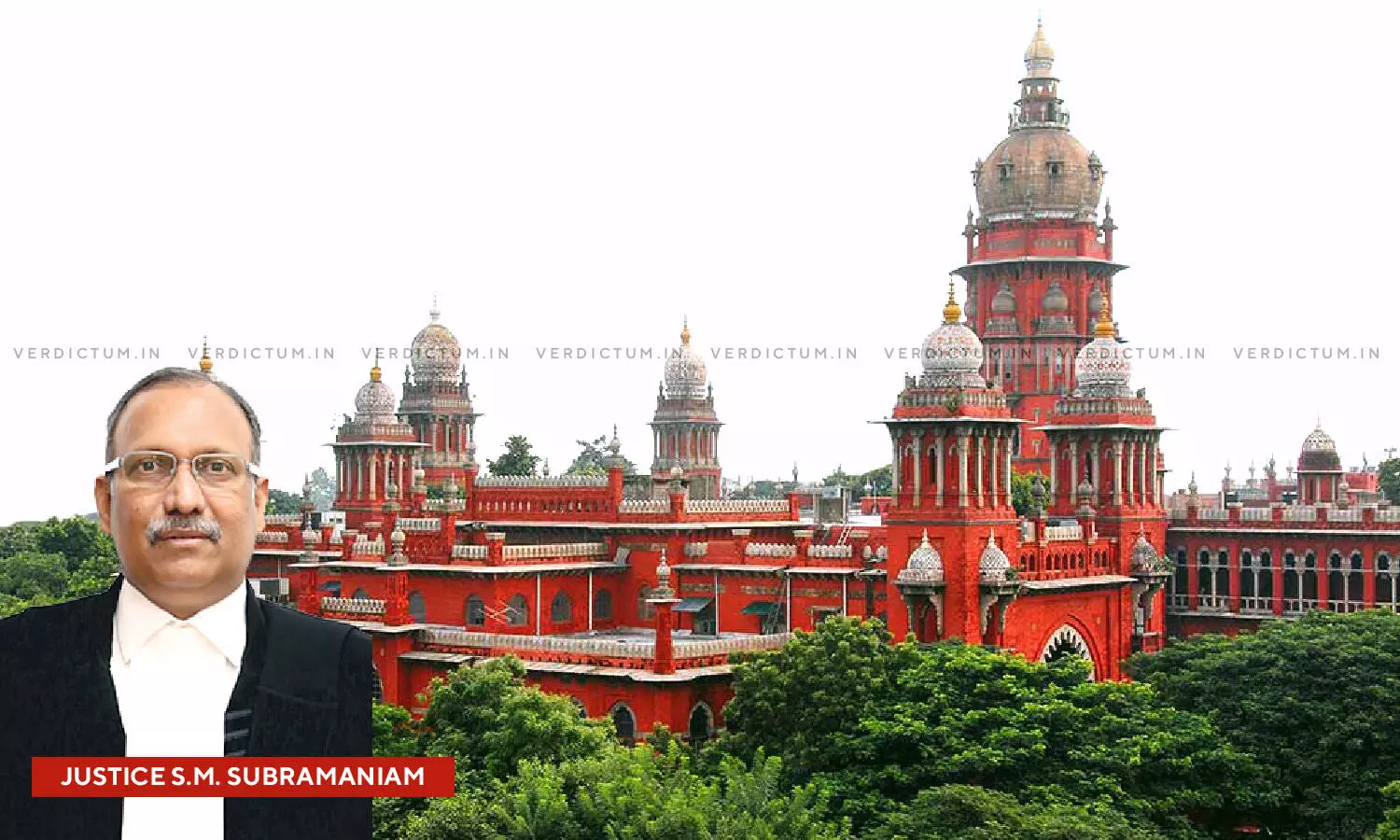
Competent Authorities Expected To Work Swiftly To Minimise And Eradicate Corrupt Practices - Madras High Court
 |
|The Madras High Court has expressed concern over corrupt practices prevailing in public services in various forms. The Single Bench of Justice S.M. Subramaniam opined that there should be a drastic change in the attitude of the competent Authorities and that they were expected to work swiftly to minimize and eradicate the corrupt practices.
The Court observed that large-scale corrupt practices in various forms of public services were causing untold agony and that common men were struggling even to get their rightful and legal benefits.
"At the outset, creating sensitiveness are more important, which is also a constitutional principle for efficient and effective Public Administration. This Court is of the opinion that the awareness being created and action taken at present are insufficient, so as to cripple down the corrupt practices in public services", the Court further observed.
The Court also held that the Anticorruption Wings need to be strengthened and that periodical and frequent surprise raids/inspections should be conducted in public offices.
The Court opined that "The competent Authorities of the Government have choice to obtain suggestions and expert opinions in the field of Anticorruption and accordingly issue comprehensive instructions/directions/guidelines to deal with the corrupt practices in Public Departments."
The Court was adjudicating upon a writ petition challenging the order of punishment of reduction in the time scale of pay by three stages for three years.
In this case, the writ petitioner was recruited as Gr-II Police Constable in the year 1977. He was promoted up to the level of Special Sub Inspector of Police and retired from service on attaining the age of superannuation, in 2010.
While he was in service, a charge memo was issued with an allegation that the writ petitioner was receiving mamool of Rs.50/- twice a week from one Ravi, who was running a bunk shop nearby.
Upon enquiry the charge against the writ petitioner was proved. The disciplinary authority accepted the findings of the enquiry officer and imposed the punishment of reduction in the time scale of pay by three stages for three years and the period of reduction shall operate to postpone future increments for three years.
The counsel for the petitioner, R.Sampathkumar, contended that the writ petitioner was having an unblemished record of service for about 35 years and that the charges were based on certain false complaints.
He also contended that the punishment of reduction in the time scale of pay by three stages was imposed during the fag end of retirement and thus, such a punishment cannot be implemented.
Special Government Pleader, S.Anitha, appearing on behalf of the respondent argued that the said punishment was imposed when the writ petitioner was in service, hence it was implementable.
The Court observed that the complainant who was the owner of the bunk shop, categorically deposed that he was paying regularly a sum of Rs.50/- twice a week to the beat constables.
The Court also noted that no criminal case was registered in this regard. "The nature of punishment imposed would also reveal that the police department has not taken the issue of receiving Mamool in a serious manner. It is corruption charges. Admittedly, no criminal case has been registered for receiving Mamool from the owner of a bunk shop. When the witnesses have deposed before the enquiry officer that the police constables are regularly receiving Mamool from the bunk shop owner, twice a week and the charges are established, the authorities have imposed the penalty of reduction in time scale of pay in three stages. The insensitiveness shown by the authorities regarding the corruption, is apparent", the Court observed.
The Court held that the public servant is expected to maintain utmost integrity and honesty while discharging his/her public duties and responsibilities.
The Court further noted that "Perusal of the entire findings of the enquiry officer in his report, it is clear that the allegation of receiving mamool by the police officials are established."
"…the punishment cannot be said to be disproportionate or otherwise and the proved charges against the writ petitioner are corruption charges and this Court do not find any perversity", the Court held while dismissing the writ petition.
Click here to read/download the Order